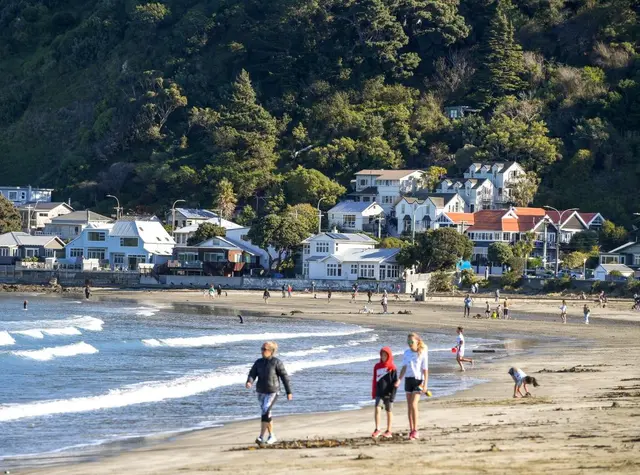New Zealander Wendell Cook started his work from home as usual on Monday in Wellington, a new normal for him since the country started the battle against the COVID-19 late in March.
His 16-year-old daughter attended distant learning organized by school at home.
The country moved from alert level 4 to 3 last Tuesday and will stay for at least two weeks at Level 3 before a further review and alert level decision on May 11.
The first time in 49 days, New Zealand reported no new COVID-19 case over the past 24 hours on Monday, with the total number of infections staying at 1,487, and the death toll standing at 20.
Monday's figure was "cause for celebration," Director-General of Health Ashley Bloomfield told a press conference.
Wendell Cook attributed the success of New Zealand's anti-COVID-19 efforts to "good governance" and "luck," as New Zealand's geographic location is relatively isolated and it has a low population density. The government keeps communicating the situation with the public, releasing information timely to avoid panic.
The national unity, trust in the government and the public's active cooperation have played an important role in the country's epidemic control, Cook said.
SOCIAL IMPACT
Since the alert level was lowered last week, industries including construction, manufacturing and catering have resumed operation, with the vast majority of others still required to continue working or studying at home to avoid social contacts.
New Zealand may lower its alert level to level 2 next week, which will allow all businesses and public facilities to open while maintaining a social distancing of one meter.
"I'm still working from home. I haven't been able to see friends and my parents, as they live about an hour north of here by car, so ... I probably can't see them until level 2," Cook said.
"The schools have done a pretty good job in organizing classes and materials to be available online. My daughter, a teenager, is quite independent already and she can study quite well by herself," he added.
"The epidemic is absolutely a tragedy for so many people worldwide and it's not over yet. While some countries like New Zealand have done quite well, in a lot of places they're still dealing with it," Cook said, calling for international cooperation to combat the virus.
ECONOMIC IMPACT
Unlike Cook, according to alert level 3 rules, construction, manufacturing and catering workers can work on site.
On Monday morning, Pan, the manager of Chinese restaurant "Hao Yuan" in Wellington, prepared the ingredients for lunch and evening take-out. Catering and tourism are New Zealand's pillar industry, contributing the largest source of employment and foreign exchange.
Pan said that during the national lockdown, the restaurant's income fell sharply, but it still had to pay employees' salaries and other expenses, which was undoubtedly a disaster for the company.
Fortunately, the government has provided wage subsidies for up to three months to industries that have been hit hard by the epidemic. Full-time employees can receive 585.8 NZ dollars (353.7 U.S. dollars) from the government every week, which greatly helped the company.
Under alert level 3, the catering industry can do takeout, but people can not dine in. Pan's restaurant has launched online and telephone ordering, as well as group and network delivery. If the alert level 3 status is lowered to level 2 as planned next week, economic activities will be further liberalized, such as allowing dine-in, and the sector will be recovered very soon, Pan said.
Economists believe New Zealand's government debt is low, and quantitative easing maintains low interest rates, so that it can maintain a sound momentum of stable economic recovery.
Insurance company FM Global named New Zealand as the 12th "most resilient country" in the world in the 2019 Global Resilience Index.
 简体中文
简体中文

